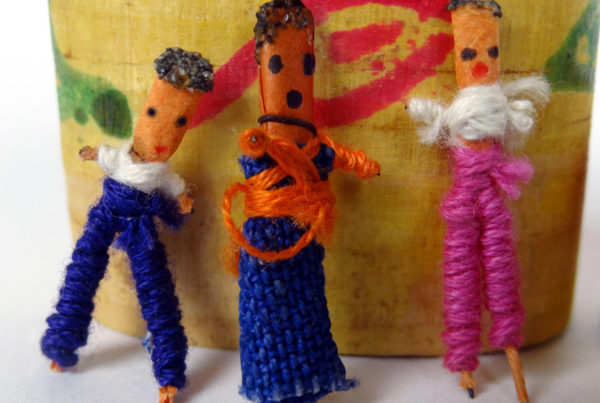
Do you want to write a novel or memoir, but don’t have any earthly idea how to begin? Don’t know what the plot of your novel might be or which part of your life you should pick as the focus of your memoir?
Start your notebook.
Record every memory that floats up: The spring you and your sister poured Mercurochrome onto the roots of the dogwood, hoping to turn its blooms pink. The summer the two of you peroxided your bangs and lay on chaises in the back yard, waiting to turn blonde and glamorous. The last Thanksgiving your family was together in your parents’ house.
Write down your dreams, ideas for scenes, gestures you observe in the people around you – the way your mother pushes back her cuticles, the guy who repairs your car (how he keeps scratching the back of his knee). Clip newspaper articles that capture your imagination.
A great benefit of keeping a notebook is that it’ll help you become a better noticer. Which is crucial. Curiosity is part of the job description for a writer. You’ll need a lot of details to fill the pages of a book, and the particulars you’ve written down can be used to make your characters in your novel more alive or you can draw upon those memories for scenes in your memoir.
What else do you record? Awarenesses about your life, which you can then use in your memoir for reflection or analysis — or give to a character in your novel.
Years ago, a friend admired a vase or some other pretty thing in my house and I said, “If you look closer, you’ll see that it’s been broken many times and glued back together. In fact, everything in my house has been broken and glued back together.” Then I thought, “That’s an interesting sentence. Everything in my house has been broken and glued back together. What if I invented a family for whom that sentence would be true?” I recorded that sentence in my notebook, and it became the opening of my second novel, Early Leaving. Later I moved the sentence to the middle of the book. Then it got bumped to the end. Finally, I cut the sentence altogether. But it served a purpose – it gained me entrance into the story.
What else do you store away in your notebook? Conversations you overhear in the garden area of Lowe’s, next to the mulch. Conversations you overhear in a restaurant:
One morning my husband, my son-in-law, and I were having breakfast at Honey’s in Durham. At the table next to us was a family – a man, his wife, and their son, about five years old. The little boy was talking when we sat down and kept on talking throughout the meal. All of a sudden, the father reared up, glared at him, and said, “You know what your problem is? You’re hardheaded and you talk too much!” Now I didn’t like what the father said to his son, but I did appreciate the rhythm of his sentence. I whipped out my notebook and wrote down his exact words. If you look on page eleven of Early Leaving, you’ll find an entire chapter wrapped around those thirteen words I overheard while eating bacon and eggs at Honey’s.
Now here’s what’s interesting about keeping a notebook: You’ll find that you’ll become a magnet for details that pertain to the project you’re about to begin. Ideas will coalesce and you can actually see your story forming, because your sub-conscious is doing the work for you.
When you feel that you’re ready to begin, scan your notebook. Which lines have the magic? You might take an actual sentence from your notebook to use as your first line, to get your pen moving across the page or your fingers tapping on the keyboard.
What’s floating up through the layers of your mind right now? The girl who won the Good Posture Prize in the fifth grade? The time your sister asked if she could have the Majolica vase your mother gave you right before she went into the nursing home, how your father – overhearing your sister’s request – told you and your sister that she has the right to ask but you have the right to say no? The knock-knock jokes your two-year-old grandson tells? Grab your notebook. You’re already on page one of your book.




Wonderful posting, Judy! At the age of 51, I am trying to get in the daily habit of writing in a journal. I went through an interesting obsession this summer, trying to find the “right” black-cover journal to write in, I know it was a silly waste of time, like someone searching for a particular bottle of wine or heirloom tomato. But it was also fun. Now that I have my journal, I just need to write in it on a regular basis. Thanks for your encouraging nudge!
Dear Slow Reader,
Thanks for your comment. Now, instead of reading my blog, go write in your notebook! One other thing I want to tell you: Fred Chappell, a wonderful North Carolina writer, says that you have to write as though you have all the time in the world. That’s a quote I’d like for every writer over 50 to tape to their computer!
Good luck with your writing,
Judy
Thanks for the post, Judy. And thanks for starting a blog. I could really learn a lot from someone like you – a kindred spirit with a parallel career path.
Jim,
Thanks for your comment. Hope our paths will cross again soon and we can “talk writing”! Also hope that Agatha and Cozette are having a good school year.
Best to you,
Judy
Judy,
Reading your blog is like sitting down next to you. Loved reading it and plan to stay tuned for more installments. Ellen sent it to me this morning. My dream is to write a cookbook one day. Take care.
Love,
Susan
Susan, did I ever reply to your very kind note? I’m so afraid I didn’t! Anyway, thanks for reading my blog and taking the time to write to me. I think you should proceed with that cookbook you’ve been wanting to write. I’d love a copy!
xxoo
Judy
I am linking to this post on Friday on my blog. I loved it. I have a question for you: Do you put everything in one notebook or do you keep a notebook for each project?
Hi, Marybeth,
Did I ever reply to your very nice note? Please forgive me if I didn’t. Somehow, things got kerflooey for me! To answer your question: I keep one notebook for a certain period of time — until I finish that particular project. Of course, there’ll be plenty of notations in that notebook that I won’t end up using in the book I’m writing at the time. I don’t worry about it. Every now and then, I go back through old notebooks to see what’s there that I might use in future projects.
Hope this helps.